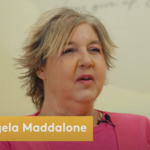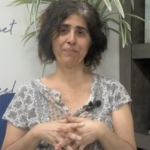Throat Cancer
Medically Reviewed by: Dr. Bautista
Our Editorial Policy
Updated on: October 12, 2024
About Throat Cancer
Alternative medicine offers diverse treatment options for those diagnosed with throat cancer. Throat cancer, a challenging type of cancer to detect early, often necessitates alternative, holistic treatment. Compared to other cancer types, it is a relatively uncommon strain.
Where is Throat Cancer located?
Demonstrated by clinical trials, throat cancer begins when malignant tumors form in one of three places:
- Pharynx
- Larynx
- Tonsils
How Does it Impact Your Body?
In the early stage cancer, it affects the local area of the throat and can impact a person’s ability to speak or swallow, depending on the rate of cancerous tumor growth. Left untreated, the tumor cells will spread into the lymph nodes and then local organs, which could ultimately lead to esophageal cancer, oropharyngeal cancer, or even lung cancer. Proper diagnosis and early treatment are essential to prevent serious progression.
Are There Different Types of Throat Cancer?
There are a variety of throat cancers, including:
- Laryngeal Cancer – The most common type of cancer begins when tumor cells form on the larynx (vocal cords). Laryngeal cancer requires special attention as it poses the risk of a cancer patient losing the ability to speak.
- Adenocarcinoma – Starts in the glandular cells of the throat.
- Sarcoma – A rarer strain that starts in the muscle fibers of the neck.
- Pharyngeal cancer – The second most common form of throat cancer. It has three subcategories:
- Nasopharynx
- Oropharynx cancer
- Hypopharynx, also known as hypopharyngeal cancer
Throat Cancer Statistics
Every year, more than 15,000 adult men and women will be diagnosed with laryngeal or pharyngeal cancer. These types of cancer, including laryngeal cancer, often require a combination of treatments and comprehensive care. Of these, where it originates is broken down as follows:
- 60% in the glottis
- 35% in the supraglottis
- 5% in the subglottis
Causes and Risk Factors
It remains unclear why cells in the throat develop genetic mutations that turn into cancer. According to clinical trials, we do know that there are factors that can increase the likelihood of developing a throat cancer diagnosis, including:
- Chewing tobacco
- Smoking tobacco
- Alcohol use and abuse
- Human papillomavirus (HPV)
- Lack of fruits or vegetables in diet
- Gastroesophageal reflux disease (GERD)
Maintaining good health habits and addressing these risk factors early can help prevent cancer development.
Early Detection, Diagnosis, and Staging
Throat Cancer Symptoms
Signs and symptoms of cancerous cells in the throat you should be on the lookout for are:
- Persistent cough
- Difficulty swallowing
- Alteration in voice tone or tenor
- Hoarseness
- Dry mouth
- Ear pain
- Swollen throat
- Regular sore throat
- Weight loss
- Lump or sore on the throat that doesn’t heal
The Different Stages of Throat Cancer
Throat cancer follows typical cancer staging, which ranges from 0 to 4. They are:
- Stage 0 – Potentially cancerous cells develop in the throat but aren’t found anywhere else.
- Stage I – Tumor in the throat is less than 2 centimeters and has yet to spread to a lymph node or local organ. As mentioned before, if not caught in time, throat cancer patients may be contributing to the onset of esophageal cancer, oropharyngeal cancer, or lung cancer.
- Stage II – Tumor is more than 2 centimeters but less than 4 centimeters. Cancer has not reached the lymph nodes or other parts of the body.
- Stage III – Tumor is larger than 4 centimeters or has spread to 1 or 2 lymph nodes. It hasn’t yet spread elsewhere. Though tumor growth has increased, the cancer cells haven’t spread elsewhere.
- Stage IV – Tumor can be of any size, but cancer cells have spread to large lymph nodes, local organs, or further regions of the body. At this point, the cancer patient must see an oncologist or cancer center as stage IV is the most critical stage of the disease.
Throat Cancer Alternative Treatment
Recently, scientific progress and advances in cancer research and clinical trials have demonstrated that there are better ways to treat cancer (other than traditional treatment options). Today, any throat cancer patient does not need to rely on harsh methods of targeted therapy or standard treatments, such as chemotherapy and radiation therapy or invasive throat cancer surgery, as their only option for throat cancer treatment.
You can say goodbye to the unbearable flu-like symptoms that often follow when undergoing harsh targeted therapy. Immunity Therapy Center specializes in cutting-edge throat cancer alternative treatments that work by strengthening the immune system, thus allowing your body to fight cancer naturally.
At ITC, each patient that walks through our doors is given a completely custom treatment plan of holistic therapies and alternative medicine for optimal cancer care. Under Dr. Bautista’s vigilant watch, a patient’s throat cancer plan is adjusted or altered on a daily basis to ensure that his/her body is responding well to the various alternative therapy treatments.
If you’re searching for a natural way to battle cancer, instead of using traditional treatment such as radiation therapy or chemotherapy, then you’ve come to the right place. Reach out today to set up a consultation for throat cancer treatment and learn more about ITC’s innovative strides towards improving cancer care, providing support, and enhancing patient healing.
Sources:
- National Health Institute. Common Cancer Types. https://www.cancer.gov/types/common-cancers
- Cancer.net. Laryngeal and Hypopharyngeal Cancer: Statistics. https://www.cancer.net/cancer-types/laryngeal-and-hypopharyngeal-cancer/statistics
- Cancer.org. Treating Laryngeal and Hypopharyngeal Cancer. https://www.cancer.org/cancer/laryngeal-and-hypopharyngeal-cancer/treating.html
Therapies we use
At Immunity Therapy Center, our goal is to provide objective, updated, and research-based information on all health-related topics. This article is based on scientific research and/or other scientific articles. All information has been fact-checked and reviewed by Dr. Carlos Bautista, a Board Certified Medical Doctor at Immunity Therapy Center. All information published on the site must undergo an extensive review process to ensure accuracy. This article contains trusted sources with all references hyperlinked for the reader's visibility.
Customized Care For the Body And The Mind
Discuss Your Custom Alternative Treatment Plan With Our Team Today
Hear from Our Patients
See why the Immunity Therapy Center is a trusted name for medical tourism and cancer treatment centers in Mexico.
- Diseases and Treatments
- Our Mexico-based Center and Team
- Patient Expectations and Experiences
- Costs and Travel Arrangements
Diseases and Treatments
Many patients come to us after going through several rounds of chemotherapy, radiation, surgery, and other conventional cancer treatments. Our alternative cancer therapy programs are often more effective and have fewer side effects for our patients than those treatments.
Many of our alternative therapies are designed to boost your immune system so it is better able to recognize, fight, and kill cancer cells without the need of chemotherapy and radiation.
Learn more about our alternative cancer therapies.
We offer the following alternative therapies for naturally treating cancer and other diseases:
- Whole Body Hyperthermia
- Localized Hyperthermia
- Sonodynamic Therapy
- Laser Cancer Therapy
- Insulin Potentiation Therapy (IPT)
- Rife Therapy
- Intravenous Solutions (IV Cancer Therapy)
- Enzymatic Cancer Therapy
- Oxygen Cancer Therapy
- Vitamin and Mineral Supplements
- Laetrile Therapy (Vitamin B17)
- Specific Transfer Factor Vaccine Against Cancer
- Regenerative Cell Cancer Therapy (Peptide Treatment)
- Intraperitoneal Perfusion Hyperthermia
- Viral Anticancer Vaccine
We emphasize immunotherapy cancer therapy, which includes different therapies designed to boost and strengthen your immune system so it can recognize, fight, and kill cancer cells on its own. Immunity Therapy Center is unique because we are able to offer both alternative and conventional treatments in customized, individualized programs.
Learn more about our alternative cancer therapies.
Most treatment programs are completed in three weeks. Depending on the stage and condition of your disease, you may require a treatment program of six weeks or more.
Learn more about our treatment process.
Dr. Bautista will evaluate you once your program is complete and recommend follow-up care. Depending on your situation, this may include alternative therapies, medications, and natural supplements you can take at home, or returning to our center in three to six months for further treatment.
Learn more about our alternative cancer treatment process.
Our Mexico-based Center and Team
We are in Tijuana, a major metropolitan city in Baja California, Mexico, right across the border from San Diego, California. Learn more about our location and our facility.
Dr. Bautista received formal medical training from Baja California State University in Mexico. He also holds a Masters in Nutrition from the same university. He has worked as a Director for alternative medicine hospitals. Early in his career, Dr. Bautista became interested in alternative cancer therapy and treatments and has studied alternative treatments extensively around the world.
Learn more about Dr. Bautista.
Patient Expectations and Experiences
Our alternative, natural treatment programs are completely customized and different for each person. Dr. Bautista personally evaluates each patient to design a holistic, alternative therapy program based on specific needs. He meets with every patient, every day, to monitor and evaluate his or her treatment and progress. This allows him to make immediate adjustments to treatments as needed.
Our entire team strives to make your treatment program a positive experience.
Learn more about our treatment process and listen to some of our patients’ experiences at Immunity Therapy Center.
We treat a wide range of patients with a variety of cancer types from stage 1 to stage 4, as well as patients with different autoimmune diseases, chronic degenerative diseases, and infectious diseases. All these factors, as well as previous treatments and medical history, impact individual success and survival rates.
Dr. Bautista will discuss your condition and chance of success during your initial consultation. Many of our patients do go into remission and see enhanced quality of life following treatment.
Learn more about survival and success rates.
We highly encourage bringing a friend or family member. Having strong support is an important factor in your treatment success.
Dr. Bautista and our nutritionist will discuss your diet with you during your cancer treatment. Your specific dietary needs may vary, but we encourage you to eat a balanced, organic diet as much as possible.
We have an onsite chef that prepares organic, healthy meals at our center.
Costs and Travel Arrangements
A typical three-week treatment program costs $18,995USD, and includes all therapies, diagnostics, and a healthy, organic, breakfast and lunch (+2 juices/smoothies) Monday – Saturday. Room and other board, travel costs, surgeries, and blood transfusions are not included. Some very specific therapies may not be included. Depending on your stage and condition, you may need six weeks of treatment or more.
There are options to help you cover the cost of your alternative cancer treatment at Immunity Therapy Center. Visit our Payment & Financing page to learn more.
Unfortunately, most major health insurance providers do not cover alternative treatments, but there are other options to help you cover the cost of your treatment. Visit our Payment & Financing page to learn more.
We accept major credit cards (some fees may apply), personal and cashier’s checks, wire transfers, and cash. You can also easily PAY ONLINE.
Airfare is not included in the program cost; however, transfers to and from the airport (Tijuana or San Diego) and transportation between our center and your hotel are included.
You may fly into Tijuana, Mexico or San Diego, California. Wewill make arrangements to meet and pick you up at either airport. We are only 25 minutes from the San Diego International Airport. You may also drive to the center. When you schedule your treatment, we will provide detailed driving directions.
Learn more about making travel arrangements to our facility in Tijuana, Mexico.
If you are undergoing outpatient treatment, you will need to stay in a local hotel or other lodging option during your treatment. We are located near several quality hotels in Tijuana, and have arranged special rates for our patients.
Learn more about recommended hotels and accommodations on our Travel Information page.
Start Your Healing Journey with a FREE Consultation
At ITC, we understand the importance of feeling heard and supported. Fill out our form, to speak with one of our patient advocate in the next 24 hours to have a free consultation and guidance, creating a personalized treatment plan just for you. You’re not alone on your path to healing. We’re here to support you through every step!







